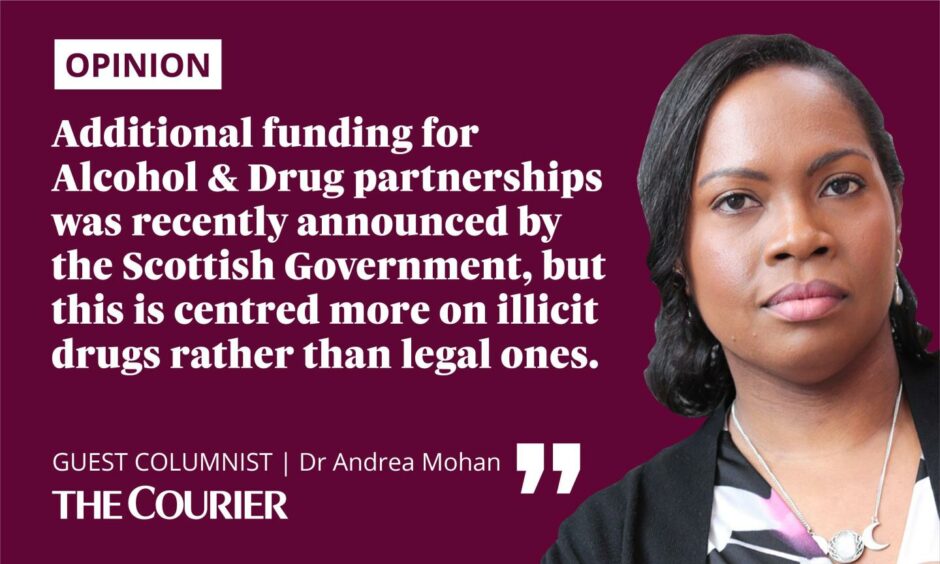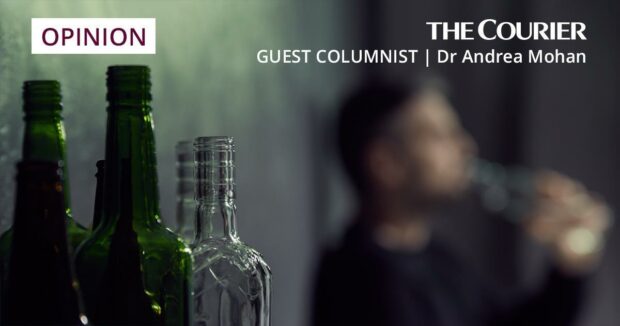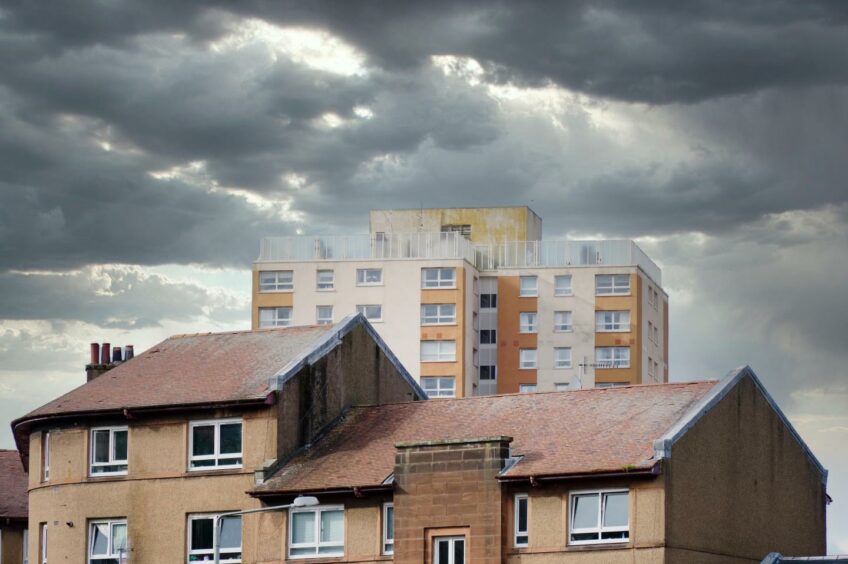Alcohol continues to cause serious harm in Scotland, including 1,190 deaths directly linked to drinking in 2020.
Sadly, that’s an increase of 170 from the previous year.
And the number of deaths was 4.3 times higher in the most disadvantaged areas compared to the least.
Action is urgently required to address the deep-seated issues driving this patently unfair situation.
Along with colleagues, I have explored how a specialist alcohol service that works closely with general practices can support people who have alcohol problems.

People from disadvantaged areas often face several challenges when seeking help for alcohol problems.
Many feel ashamed and can find it difficult to reveal they have a problem.
Some also feel stigmatised by society and this may prevent them from seeking help in the first place.
For many, their alcohol problems stem from mental or physical health issues, or social issues such as unemployment or unstable housing.
Scotland has a drugs and alcohol problem.
The Scottish Government needs to set out an integrated plan showing how extra spending is being used to reduce the tragic loss of life we've seen over the last decade.
My new joint briefing with @AccCommScot: https://t.co/vQ0lice2be pic.twitter.com/IRNeAgWHop
— Stephen Boyle (@AuditorGenScot) March 8, 2022
They need specialised support – for all of these issues.
But unfortunately, many of the current alcohol services in Scotland do not offer the care this population group requires.
Support without stigma – a new approach to alcohol services
Our new study focused on a unique and specialised alcohol service, the Primary Care Alcohol Nurse Outreach Service or PCANOS, that supports people with alcohol problems from the most deprived areas in Glasgow.
Specially trained addiction nurses support people whose alcohol problem has seriously impacted their health, and who have had problems engaging with other alcohol services in the past.
Unlike other services, the addiction nurses work closely with GP practices, which refer patients with alcohol problems to PCANOS.
The addiction nurses then visit the patients in their homes.
Our study found this helped to reduce feelings of stigmatisation.
It also helped the nurses to build trust with the patients, so they feel safe to talk about their alcohol problems and other issues.
Over 12 weeks, the nurses help patients to reduce their alcohol intake and support them to gain better control of their drinking habits.
They also directly link patients to social or mental health services if needed and put patients in direct contact with other alcohol services in the community for continued support.
Support could make a difference in Tayside and Fife
PCANOS is important because it addresses a population group who are not supported by other alcohol services.
If left unsupported, this group will continue to experience serious harms to their health and may eventually die of alcohol-related causes.
New briefing from @AuditScotland shows that with recent devastatingly high deaths from alcohol and drugs, which particularly affect our most deprived communities, there needs to be a clear integrated plan to support people with both alcohol and drugs problems.
See thread below👇 https://t.co/3P9bzH7PND
— AlcoholFocusScotland (@AlcoholFocus) March 8, 2022
Our research was carried out in Glasgow. But it is relevant to disadvantaged populations in Tayside, Fife and elsewhere in Scotland.
Aside from cutting the human costs arising from alcohol problems, I would suggest the Scottish Government considers rolling out PCANOS in areas of high deprivation where such services do not exist.
It’s an investment that will pay dividends in the long run.
In 2020/21, there were 35,124 alcohol-related hospital stays in Scotland (at a rate of 641 per 100,000 in the population).
Alcohol consumption is a causal factor for more than 200 disease and injury conditions.
Additionally, alcohol harm costs the Scottish Government £3.6 billion per year (equivalent to £900 per person), including £405 million in NHS services.
Additional funding for Alcohol & Drug partnerships was recently announced by the Scottish Government, but this is centred more on illicit drugs rather than legal ones.
This is perhaps understandable given the shamefully high rates of drug-related deaths in Scotland.
But in the race to address one human tragedy we should not neglect another.
PCANOS is not a silver bullet to solve all of Scotland’s alcohol-related harms.
But it is filling an important service gap by supporting those struggling with an alcohol problem that is already negatively impacting their health.
Dr Andrea Mohan is a Lecturer at the School of Health Sciences, University of Dundee.











